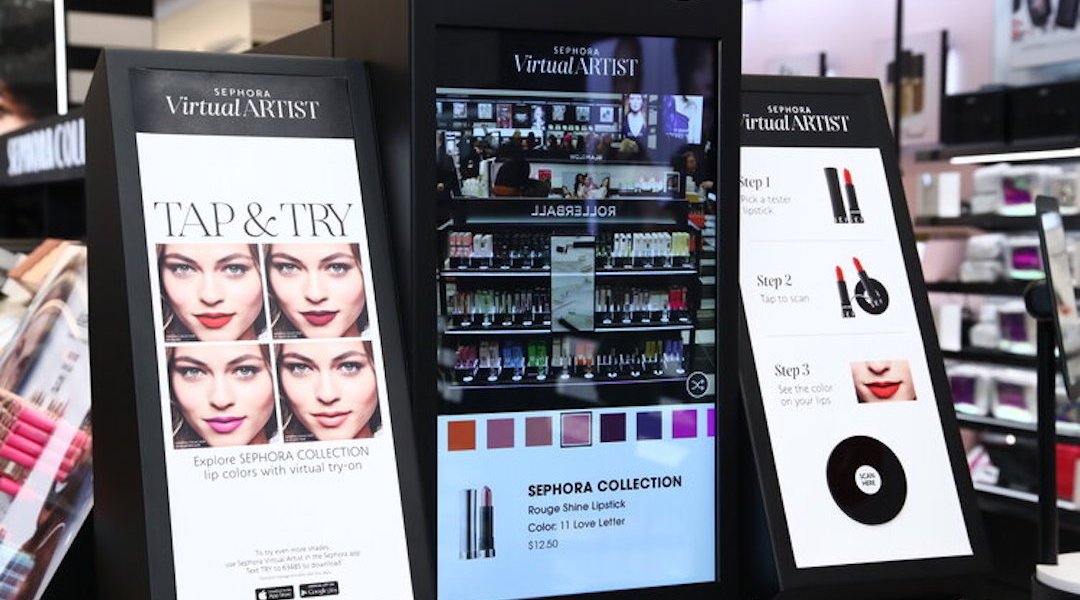Following its announcement in June to take the 15% Pledge, which supports Black-owned beauty businesses, Sephora is taking more actionable steps to improve equity and inclusion in its stores.
The LVMH-owned retailer has begun work on a national company research study that will include quantitative and qualitative data gathered from BIPOC shoppers and retail associates, in order to evaluate racially-biased and exclusionary treatment in Sephora store environments and throughout the retail landscape. Developed in partnership with Dr. Cassi Pittman Claytor, a Case Western Reserve University sociology faculty member; Dr. David Crocket, a marketing professor at the University of South Carolina; and Sephora’s existing 22 equity advisors including April Reign, the creator of #OscarsSoWhite, Sephora will be looking at how the retail experience can be disrupted or problematic due to bias and inequality. Sephora has framed the study and its upcoming equity efforts around the following areas: individual interactions customers have with retail employees, gatekeeping (code words for certain shoppers), curation of products and the organization of stores (in which certain products are locked or secured). Once Sephora completes the study, it is planning to implement recommendations from both customers and associates by fall, said Deborah Yeh, Sephora chief marketing officer.
“Sephora has been at work on some of these issues for some time, but the current conditions make these needs more salient and more urgent,” said Yeh. “As a business model, Sephora came to [market] to offer access to prestige cosmetics that were hard to access. Retail is ultimately about the product experience, the purchase experience and how we support every client that walks into our store, physically or digitally.”
Yeh said that Sephora’s current examination of practices and products are an extension of “publicly announcing its values” last year with its “We Belong to Something Beautiful” manifesto. Sephora closed all its U.S. stores last June to hold “inclusion workshops” for 16,000 employees; and introduced the Sephora Squad last year to bring more diverse and inclusive faces and stories to the company’s campaigns and cast of influencers Prior to this, singer SZA accused a Sephora store in Calabasas, California of racial profiling in April, via Twitter.
Dr. Pittman Claytor said that changes in retail are especially important for African American customers, as “the problem of being unfairly treated for race in retail settings is even more prevalent than encounters with police,” citing a Gallup poll.
Contemporary manifestations of unfair practices in retail are more subtle than organizations currently realize, Dr. Pittman Claytor said. “It’s far more common for customers to be disrespected or to be made to wait longer or to be subject to additional security mechanisms than being called a slur,” she said. “All of these experiences enact a toll on all customers of color and create barriers that are structural and institutional.”
While Black shoppers and retail associates’ experiences are certainly part of the study and will inform changes at Sephora, all ethnicities were accounted for in the study including Asian Americans and white.
Ad position: web_incontent_pos1
Other retailers have taken steps to repair racist practices as of late: In June, Walmart, CVS and Walgreens announced the end of locking up Black beauty products in stores.
But Yeh said that curation, assortment and experience are Sephora’s special sauce.
“There are very few retailers that are as high-touch as Sephora is, and that have educated associates fluent across hundreds of products on the floor,” she said. “They need to serve from an unbiased, educated place, so our standards are going to be higher than others in retail, and we want them to be higher so we can better serve.”




